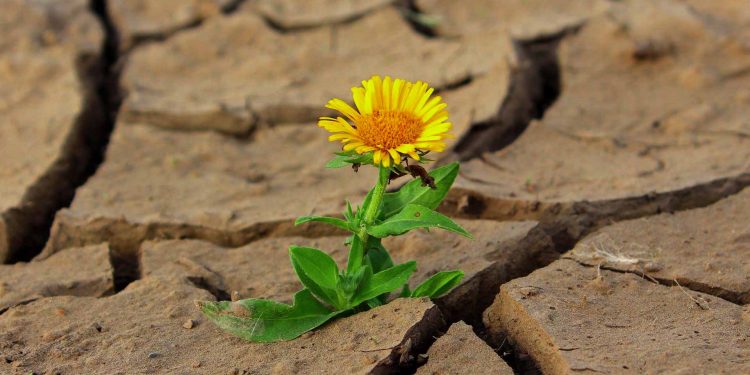The involvement of local and regional authorities in the Climate adaptation agenda will also be reinforced through key EU programmes. The European Committee of the Regions (CoR) welcomes the new EU Strategy on Adaptation to Climate Change adopted by the European Commission on 24 February 2021. The CoR regrets, however, that even though it enables the move from planning to action it still lacks concrete climate adaptation targets.
The new strategy sets out how the European Union can adapt to the impacts of climate change. From 1980 to 2016, the total economic losses caused by extreme weather in Europe amounted to over EUR 436 billion. The COVID-19 pandemic has only exacerbated the need to build a healthier and safer environment for all. The CoR called for a new EU climate adaptation strategy in an opinion adopted at the December 2020 plenary session.
It is a global emergency, for which we need local solutions
Juan Espadas (ES/PES) , Mayor of Seville, Chair of the CoR’s ENVE commission and the Green Deal Going Local working group, said: “Forests burning, floods destroying, droughts killing: so many people have been caught by climate disasters, which are becoming more frequent and intense. The climate crisis has extreme consequences and we must act now, as this is already our new normal. It is a global emergency, for which we need local solutions. The new climate adaptation strategy can help local and regional authorities to prepare and adapt to these extreme conditions and to strengthen our climate resilience. We welcome the proposal of European Commission Executive Vice-President Frans Timmermans and are grateful for his recognition of the importance of local climate action.”
Financing tools for local climate adaptation projects
Markku Markkula (FI/EPP) , Chair of Espoo City Board and President of the Helsinki Region, said: “We are pleased to see that the European Commission has adopted a more ambitious EU Adaptation Strategy in line with our call to foster active subsidiarity and proportionality, recognising the crucial role that cities and regions play in climate adaptation. We now need to move action forward and substantially increase financing tools for local climate adaptation projects, scale up the replication of best practices Europe-wide and exploit the opportunities for innovation provided by data-based policy making.” Markku Markkula is a former President of the CoR and the rapporteur of the climate adaptation opinion adopted in December 2020.
ECB Green monetary policy and Climate change

Agriculture is the sector most vulnerable to climate change
The CoR supports the European Commission objective to promote sustainable and resilient urban and rural development and channel financial resources to the local level, including in support of agriculture, the sector most vulnerable to climate change. The EU’s assembly of cities and regions is looking forward to cooperating with the European Commission on the new policy support facility that will provide direct technical assistance to local and regional authorities to develop and implement adaptation strategies and action plans in close cooperation with the Covenant of Mayors.
The involvement of local and regional authorities in the adaptation agenda setting will also be reinforced through key EU programmes such as the Urban Agenda, an EU initiative launched in May 2016 based on a multi-level working method between Member States, cities and the European Commission to stimulate growth, liveability and innovation in European cities.
Local climate adaptation as a crosscutting priority
The Committee supports the proposal for the revision of better regulation guidelines and the recognition of local climate adaptation as a crosscutting priority. The CoR also welcomes the emphasis that the new strategy places on mainstreaming climate adaptation policy and stresses that delivering on local climate action- one of the three priorities of the new climate adaptation strategy – is crucial to facilitate the move from planning to action.
The European Committee of the Regions (CoR) backs the proposal for a Climate and Health Observatory and suggests an open dialogue to ensure it creates the basis for the inclusion of the health dimension in the European Green Deal, the EU’s growth strategy to reach climate-neutrality by 2050.
The CoR supports further monitoring and data gathering as a key tool to target local and regional climate adaptation actions. Climate-ADAPT, the European platform for adaptation knowledge, is to be enhanced and expanded. Data from the Copernicus Climate Change Service is to be drawn upon even further.
The Council is expected to agree to conclusions on the new EU Strategy on Adaptation to Climate Change in June 2021.
Green Deal Going Local
Following the announcement made by the European Commission and the CoR at the plenary session in October 2020 , direct cooperation between the EU and local and regional authorities has been strengthened by the creation of a Covenant of Mayors’ territorial chamber, composed of 27 Members of the European Committee of the Regions who will be announced soon. The EU’s assembly of cities and regions is now present at the Political Board of the Covenant of Mayors with the Mayor of Warsaw and former MEP Rafał Kazimierz Trzaskowski (PL/EPP).
The CoR recently launched the Green Deal Going Local working group to ensure that the EU’s sustainable growth strategy and the COVID-19 recovery plans translate into direct funding for cities and regions to deliver the European Green Deal locally.
As part of its ‘Building resilient communities’ campaign, the CoR has launched an online compilation of 200 best practices from CoR members showing how cities and regions are already delivering the European Green Deal through concrete projects on climate adaptation and mitigation.
EU support for regions to work together in innovative pilot projects

EU Strategy on Adaptation to Climate Change
The new EU Strategy on Adaptation to Climate Change was announced in the Communication on the European Green Deal , following a 2018 evaluation of the 2013 Strategy and an open public consultation between May and August 2020.
Climate change is having wide-ranging impacts on ecosystems, economic sectors, human health and well-being in Europe. From 1980 to 2016, the total reported economic losses caused by weather and other climate-related extremes in Europe amounted to over EUR 436 billion , according to the European Commission.
Agriculture is the sector most vulnerable to climate change. In 2018 alone, agricultural damages amounted to some EUR 2 billion in France, EUR 1.4 billion in the Netherlands, and EUR 770 million in Germany. With global warming at 3°C, droughts would happen twice as often and the absolute annual drought losses in Europe would increase to EUR 40 billion/year, with the most severe impacts in the Mediterranean and Atlantic Regions (EU SCIENCE HUB).















